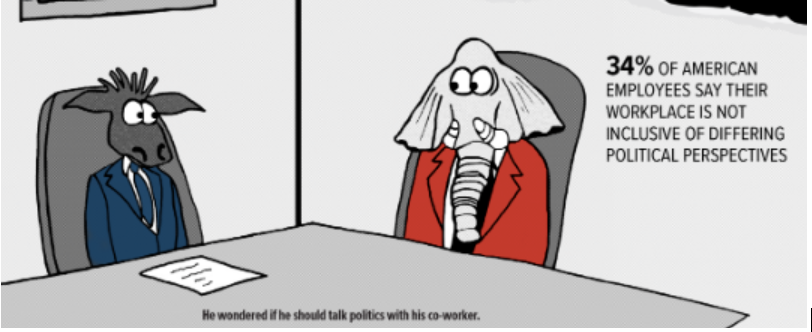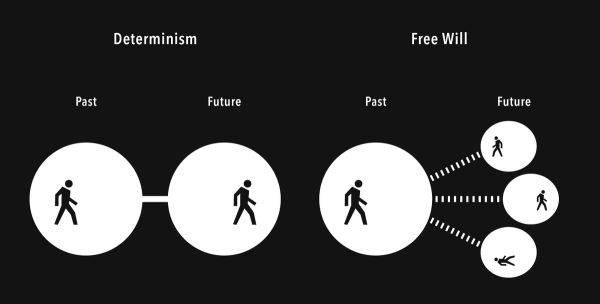How Can We Disagree Better?
The current political climate of our country is undeniably toxic. As we enter the 2020 election cycle, our nation’s division is frightening. As a result of ever-increasing polarization, we have completely lost our ability to foster healthy, non-argumentative discussion on controversial subjects, particularly around politics. The first presidential debate showed that even adults can’t seem to civilly discuss politics, making it clear that our ability to share opinions does not necessarily improve with maturity.
This political polarization is evident in the Prep community as well. As someone who identifies as a centrist on the political spectrum, it is difficult to find diverse political views. It is important for everyone, not just liberals, centrists, or conservatives, to have exposure to views from both sides to make informed opinions.
To get more student perspectives on this issue, I interviewed Liam Klatsky ‘23 and Bennett Oakes ‘21. Liam believes that although there is political diversity amongst students on campus, “there is less diversity in the political views that are openly expressed.” Specifically, it is evident that there are many more people who hold liberal views than conservatives, and conservatives don’t often express their views. Speaking on the environment at Prep, Bennett says that “there aren’t many opportunities to discuss political issues and if there are political forums on campus, people on the right may be more inclined to share their views.”
For a teacher’s perspective on the issue of political discourse, I spoke with Dr. Bowman, who teaches AP United States History. As a teacher, she believes that political discussion in class should be approached from a historical perspective. She says, “as much as we need to entertain a diversity of opinion, it is really important to call out when political norms are being broken and bring to attention when rights are being threatened.” Dr. Bowman continued to say that “people should be able to speak up and explain why they think what they do whether it’s a minority opinion or not. I think discourse where people feel they aren’t being talked down to by their peers is really important.”
So, what are we doing wrong, and how can we have better conversations at Prep? Here are some pieces of advice that I think can help our student body become better political conversationalists:
Listen and ask questions
The first and most important technique to help us become a better conversationalist is to listen. Listening to others, especially the ones you disagree with, is easier said than done. It can be tempting to interject with a refutation to someone’s argument, but staying calm and listening is essential in making the other person feel that their message is heard. The easiest way to become a better listener is to ask more questions. When you ask inquisitive, non-judgmental questions, it gives the other person an opportunity to explain their beliefs. For example, asking a question like, “How can you possibly believe COVID-19 is not a big deal?” is judgemental and unproductive. A question like, “What personal experiences led you to take this stance on the COVID-19 issue?” is not argumentative and gives the other person an opportunity to explain their beliefs without feeling attacked.
Don’t attack people’s personal beliefs or values
Criticizing people’s beliefs or core values is one of the biggest mistakes you can make when having a political discussion. One’s beliefs and values are things they are likely to be significantly attached to, so any attempts to disprove them or try to change one’s mind about them are pointless. Instead, try to understand these values and why the person with whom you are conversing has adopted those beliefs. Explain what values are important to you and why you have an emotional attachment to them. Doing this will help you appreciate the belief systems of people with opposing views and allow yourself to recognize why you hold the beliefs you do.
Sometimes, it’s best to disengage
Though you should always try to employ the techniques used above, sometimes the best thing to do is disengage. The primary reason why we have political conversations with people we disagree with is to convince others to adopt our opinions or beliefs. In most cases, these attempts are futile. Deciding whether or not to even engage with someone in contentious political discourse is an important judgment call. As the author and spiritual advisor, Deepak Chopra says, “There is no general rule to follow except this: Walk away any time you detect an impasse.” In most cases, a hostile confrontation is just not worth it.
It’s important for us as Prep students to adopt these conversational techniques as a means of sharing differing views. In the real world, not everyone will agree with you, and being able to have a constructive and healthy disagreement is an essential skill. With the support of the Prep community, we have the opportunity to set a precedent for respectful political discourse on campus and leave a lasting legacy at Prep as a place where we have good conversations and can disagree better than most.







